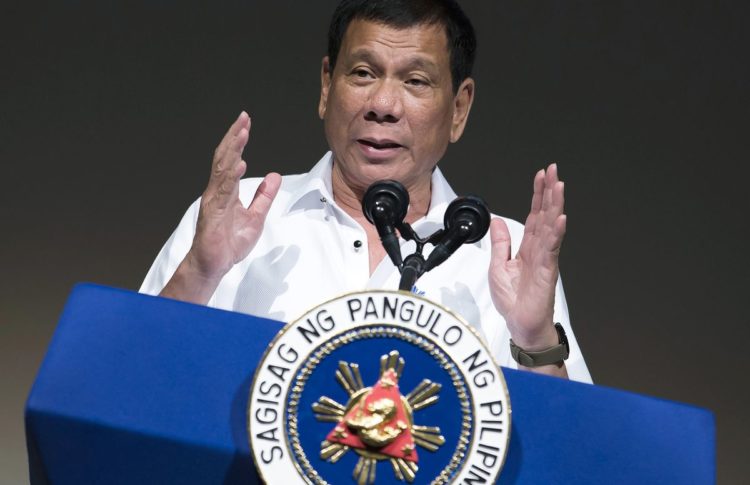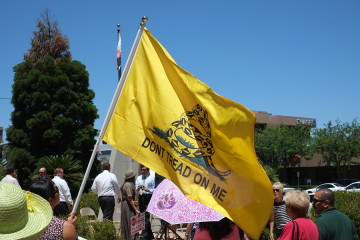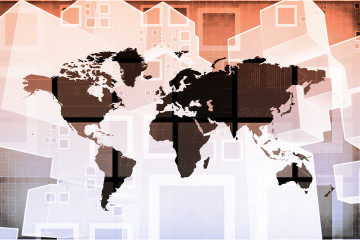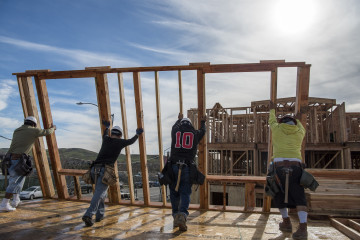Anxiety in Manila as Duterte Blasts U.S., Embraces China

published Nov 7th 2016, 7:20 pm, by Chris Blake and Norman P. Aquino
(Bloomberg) —
During long hours stuck in Manila’s choking traffic, taxi driver Maning Yabut constantly hears about the anxieties of Filipinos from all walks of life. These days, the talk is all about whether President Rodrigo Duterte’s anti-U.S. outbursts are good for the Philippines.
Particularly concerned, he said, are those with close links to America, such as the call-center workers at the heart of the $20-billion business-process outsourcing industry. Maning’s own sister moved to the U.S. and is now part of the 3.5 million-strong Filipino-American community there.
“I’m baffled by what’s happening now in our country,” said the 60-year-old cabbie who voted for Duterte but is now experiencing a pang of buyer’s remorse. “We’ve been through a lot with the Americans, and it’s not good to break up with them.”
While polls show Duterte remains wildly popular in the Philippines, concerns are growing about the potential costs of breaking up with the Philippines’ second-biggest trading partner and most important military ally. Duterte has pivoted to publicly embrace Beijing, a move that has puzzled many in a population that trusts the U.S. far more than China.
Duterte’s rhetoric — such as telling President Barack Obama to go to hell and publicly declaring a new alignment with China and Russia — is already starting to take a toll. Global funds have pulled more than $600 million from Philippine stocks since inflows peaked in August, and the peso has fallen 3.5 percent since Duterte took office in June.
The American Chamber of Commerce and other business groups in Manila have warned that Duterte’s comments are creating unease.
“AmCham has received a large volume of messages of concern from members in the Philippines, the United States, and elsewhere, asking for explanations and whether their investments, purchases from the Philippines, and visits to the country are still welcome,” Executive Director Ebb Hinchliffe said in a letter to members late last month.
‘Particular Concern’
Since Duterte began lashing out at the U.S. after Washington criticized the mounting death toll in his highly-publicized war on drugs, which has left as many as 2,300 dead since he took office, there is particular concern that his anti-American rhetoric could hamper investments in the business-process outsourcing industry. U.S. companies account for more than 70 percent of revenue in an industry that employs 1.2 million people.
So far it’s “business as usual” for most U.S. outsourcing companies, though some clients are seeking explanations about what’s happening on the ground and it could delay fresh investment, said Dom Fredrick Andaya, associate director at Colliers International Philippines.
After meeting with top U.S. business executives over the weekend, Finance Secretary Carlos Dominguez said no U.S. companies were leaving the Philippines, according to the Manila Bulletin.
Duterte is hoping that any fallout will be offset by greater investment from China. The two countries signed deals worth $24 billion during Duterte’s state visit there last month, and Credit Suisse Group AG said in a Nov. 1 report that his embrace of China would be a net positive for the Philippines’ GDP and balance of payments in 2017.
“Should further pivot towards China and away from the U.S. accelerate significantly, the negative impact on inward Foreign Direct Investment from the U.S. could rise to the point that the net impact on total FDI turns negative,” Credit Suisse said.
U.S. officials have said they welcome closer relations between the Philippines and China, though they question the need for Duterte’s critical comments. Many Filipinos, both in the business community and on the streets, say the same.
“We really don’t understand why in the process of trying to improve relations with China, the administration would find it appropriate to turn its back on what is an important and also mutually beneficial relationship with the U.S.,” Ramon del Rosario, chairman Makati Business Club, told ABS-CBN News Channel on Nov. 3.
‘Too Fast’
It’s good that Duterte is seeking to get more out from the relationship with both the U.S. and China, but perhaps he is moving away from America too fast, said Beverlyn Menor, a 32-year-old appliance saleswoman whose aunt is a doctor in the U.S.
“I agree that we should pursue an independent foreign policy but we should also be wary of China,” she said. “You don’t give up your virginity during courtship.”







No Comment